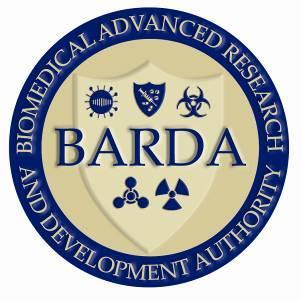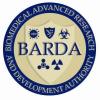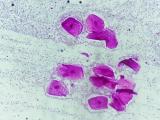The US Department of Health and Human Services (HHS) announced today it is awarding a $16.8 million contract to a Swiss company to help develop a new antibiotic to treat melioidosis and glanders, which are classified as potential bioterrorism threats.
The contract was awarded to Basilea Pharmaceutica Ltd., based in Basel, Switzerland, HHS officials said in a press release. If approved by the Food and Drug Administration, the antibiotic, called BAL30072, would be the first drug approved to treat the two diseases and could also be useful for treating other infections caused by antibiotic-resistant bacteria, HHS said.
The contract with Basilea provides for a cost-sharing partnership that can be extended for up to 6 years. HHS's Biomedical Advanced Research and Development Authority (BARDA) will provide $16.8 million for the first phase of the program and up to $89 million if the contract is extended for the full 6 years, HHS officials said.
Melioidosis, also called Whitmore's disease, is caused by Burkholderia pseudomallei, while glanders is caused by Burkholderia mallei. Both pathogens commonly cause lung infections but can also infect the bloodstream and other parts of the body, according to HHS.
B pseudomallei can be contracted through contact with contaminated water or soil, while B mallei spreads through contact with infected animals or by inhaling contaminated aerosols or dust.
HHS said early studies of BAL30072 have shown it has potential for treating a broad range of multidrug-resistant Gram-negative bacteria commonly found in hospitals, as well as melioidosis and glanders. The drug also has shown promise as part of a combination therapy with other antibiotics in treating severe infections such as hospital-acquired pneumonia, complicated intra-abdominal infections, cystic fibrosis lung infections, and complicated urinary tract infections.
Under the contract, Basilea will study the safety and efficacy of BAL30072 in treating Gram-negative infections, including melioidosis, glanders, hospital-acquired pneumonia, and complicated urinary tract infections. Results from these studies will support the eventual filing of a new drug application with the FDA.
The contract is funded under BARDA's Broad-Spectrum Antimicrobials Program and is the third public-private agreement signed this year to support development of new classes of antibiotics and the fifth since the program began in 2010, HHS said.
See also:
Jun 25 HHS press release























